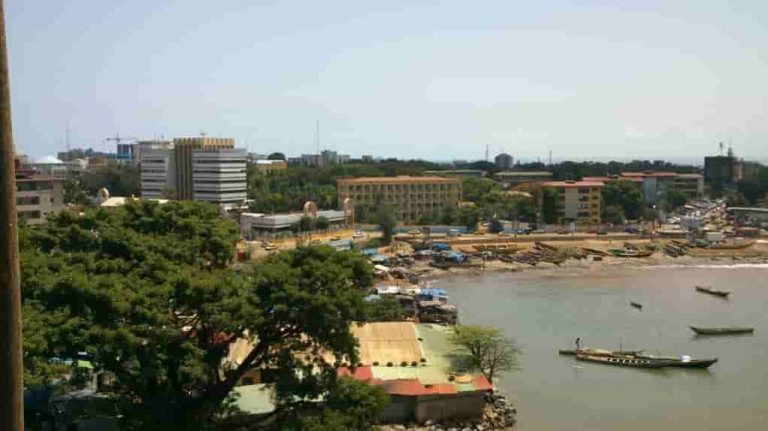Travel & Tourism
With its spectacular landscape and vibrant culture, Guinea is a hidden gem in West Africa. It possesses lush rain forests, breathtaking waterfalls, and pristine beaches. Conarky, the Guinean capital, is a bustling, vibrant, and relatively safe island city connected to the mainland by pier.
In contrast to this natural beauty, Guinea’s political situation has been anything but tranquil. The death of the longtime president Lansana Conté in 2008 plunged the country into political uncertainty. The military junta that took power massacred dissidents, union leaders, and protesters. The situation also took a toll on Guinea’s economy, as foreign investors fled the insecurity and corruption.
Despite this recent upheaval, the future of Guinea appears promising. A second round of presidential elections is scheduled for late 2010 and offers hope for future stability and democratic rule. While tourism is not currently advised in all parts of the country, successful elections could make travel secure.
What to Do in Guinea
1. Island Hopping: Several picturesque islands are just a short boat ride away from the Guinean mainland. The Îles de Los, ten kilometers southwest of Conakry, are the most accessible. Île de Roume and Île de Kassa also have several good beaches; the latter is accessible by public ferry service.
2. Mini Safaris: Rent a vehicle and take your own mini safari. Though Guinea has no national parks, abundant wildlife roams its northeastern savannas between the Tinkisso River and the Mali border.
3. Fouta Djalon Highlands: Still largely undeveloped, the area is populated mainly by herders and farmers. Its hills offer amazing views, scenic valleys, and impressive waterfalls.
4. East Guinea: Learn about Guinean culture and history by taking a drive through Guinea’s eastern region. The roads pass through many historic towns, some of which still hold remnants of medieval fortresses. The road along the Nimba Range is particularly scenic.
5. Local Cuisine: Jollof rice, stuffed chicken with groundnuts, and fish with rice are the national specialties, so make sure to eat plenty while you’re in Guinea. Fresh fruit juice is also plentiful.
6. Nightlife: Conarky contains many theaters, bars, and nightclubs. Some of the most interesting entertainment is found on Conarky’s street corners and open-air plazas. Spontaneous street gatherings are a common venue for dancing, singing, and the playing of traditional instruments.
7. Valleé de la Mariée: This lush valley is located about 150 kilometers outside of Conarky and is a beautiful swimming spot. The river Sabende plunges down its steep hills, creating a deep pond.
8. Shop!: Local markets in most cities sell an array of Guinean clothes, traditional woodwork, rugs, jewelry, and local handicrafts. Serious shoppers should visit the enormous market in Gueckedou, whose vendors hawk everything under the sun.
9. Soccer: Here, as in much of the world, soccer is the sport of choice. See the national team play at the 28 September Stadium (known in French as the Stade du 28 Septembre, named after the day on which Guineans voted for independence in 1958), in Landreah. The team may not be quite ready for the World Cup finals, but the enthusiasm of its fans is an attraction on its own.
10. Go Underground: The Kakimbon Caves, located in the Conakry suburb of Ratoma, are a site of great religious and cultural significance. Hire a local guide to explain the local legends and religious rituals.
When to Go
As happens in a tropical country, the weather is hot and humid year-round. There are two seasons: the wet season (June to November), when monsoons are common, and the dry season (December to May), when rainfall diminishes. Travel outside Conakry during the rainy season can be difficult.
Getting In and Around
Visas: A visa and a certificate showing current yellow fever immunization are generally required for entry. Check with your local embassy or government for details and the latest updates.
Transportation: Flights are available, if infrequent, from Europe and most major African cities. Boat service is available between the port city of Kamsar and Guinea-Bissau. Buses and taxis depart regularly to cities in Liberia, Senegal, Mali, and Sierra Leone. Minibuses, taxis, and private buses offer transportation within and between Guinean cities, though travel can be slow.
Mobile Phones: GSM phones are the norm in Guinea. Make sure to take one when you travel, or plan to buy an inexpensive one upon arrival. You can buy a local SIM card for access.
Safety and Security
Concerned about your safety as you plan travel to Guinea? We at Africa.com, together with our friends, family and colleagues, travel extensively throughout the continent. Here are the resources we consult when thinking of our safety in Guinea:
• UK Government Guinea Travel Advice Guidance
Africa.com comment: Very timely and frequently updated. Perspective assumes that you ARE going to travel to Guinea, and seeks to give you good guidance so that you understand the risks and are well informed.
• U.S. State Department Travel Advisory on Guinea
Africa.com comment: Can sometimes be considered as overly conservative and discourage travel altogether to destinations that many reasonable people find acceptably secure. On the other hand, they have the resources of the CIA to inform them, so they know things that the rest of us don’t know. See what they have to say about Guinea.
Local Advice
1. Guinea is located in Western Africa, with the west coast facing the North Atlantic Ocean. It is bordered by Ivory Coast, Guinea-Bissau, Liberia, Mali, Senegal, and Sierra Leone.
2. Conakry, on an island just off the coast, is the capital and the economic and administrative center.
3. French is the official and business language. It will help to learn a few phrases in French before you travel to Guinea.
4. Ninety percent of the population belongs to one of three main ethnic groups: Peuhl, Malinke, and Soussou.
5. Islam is the majority religion. Christianity and indigenous religions are also practiced.
